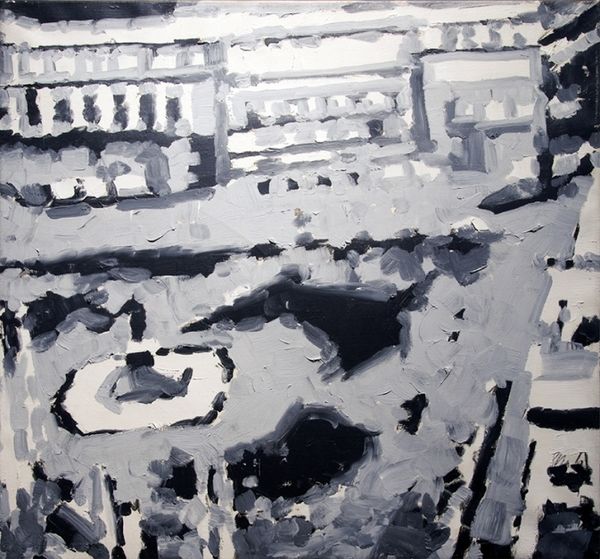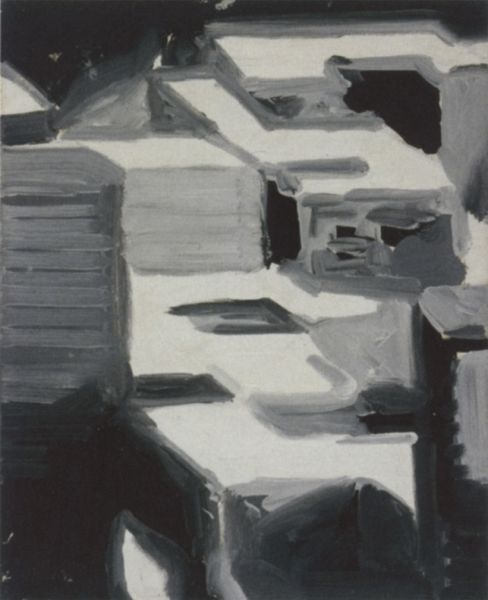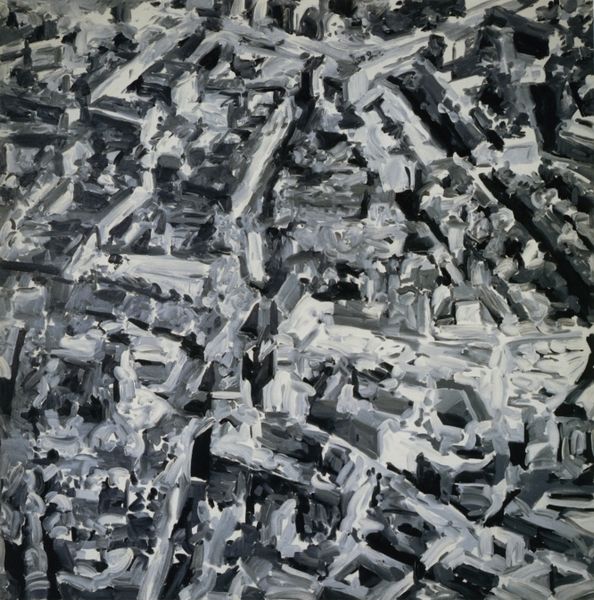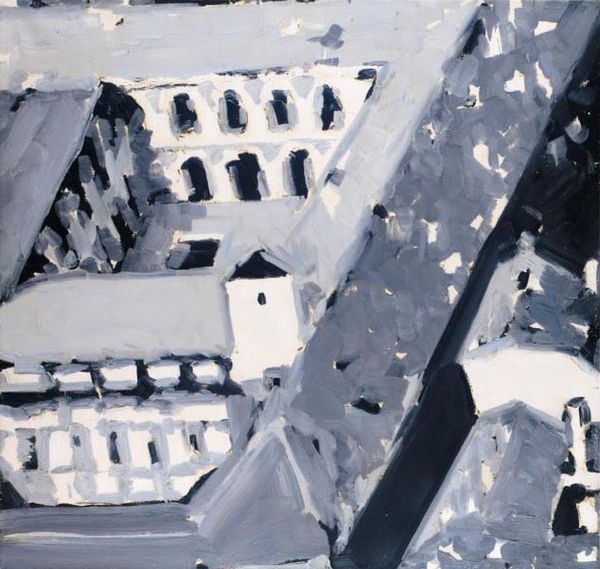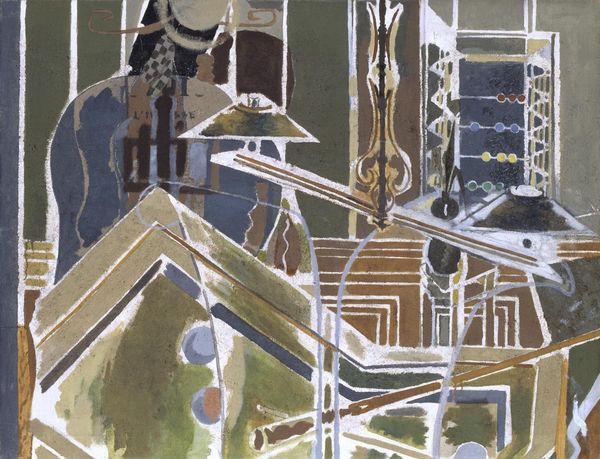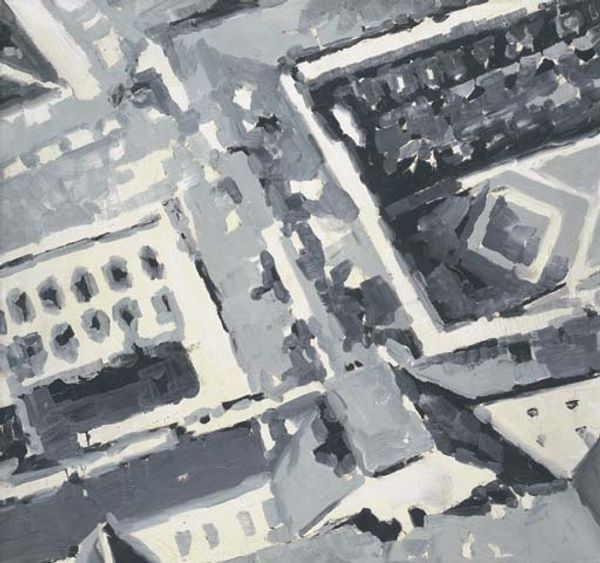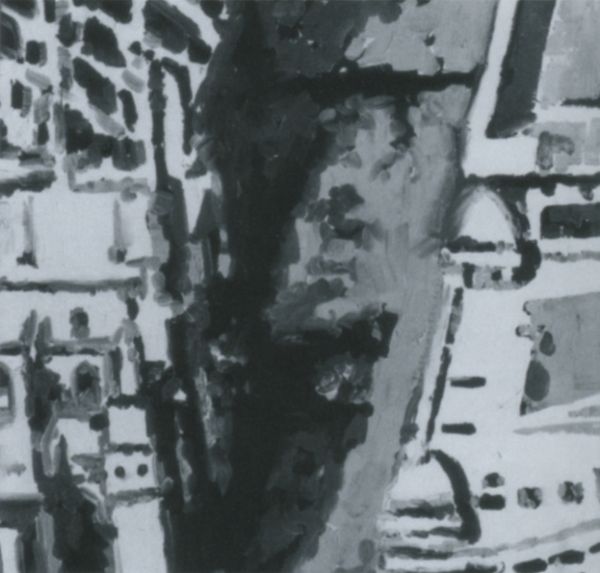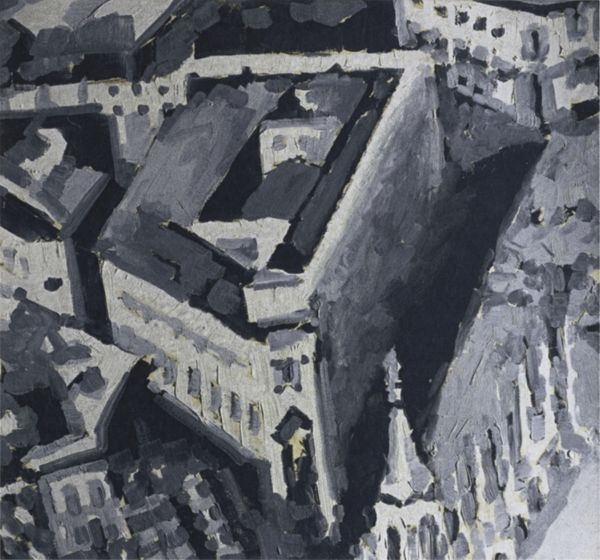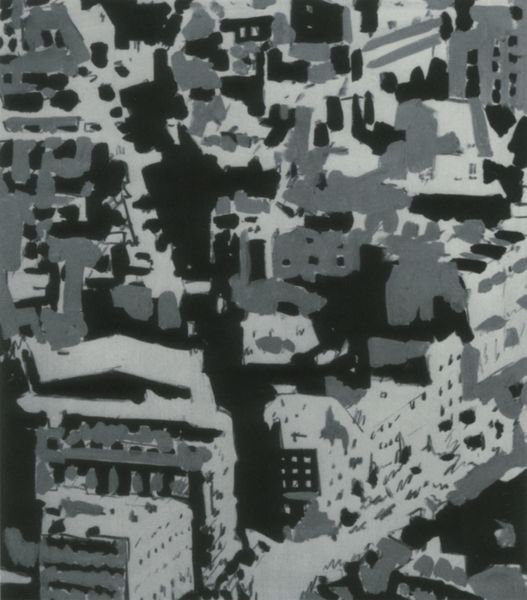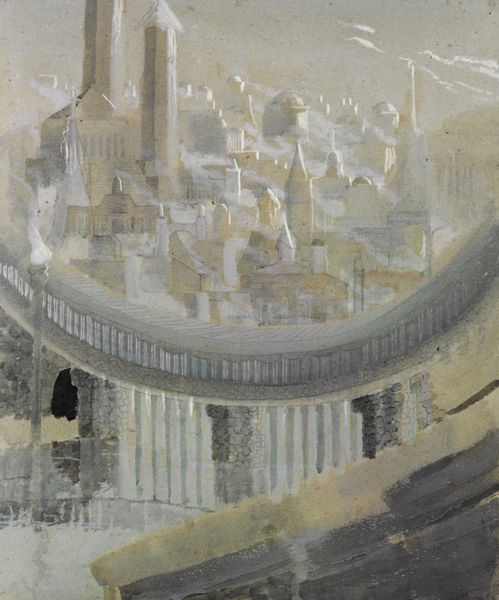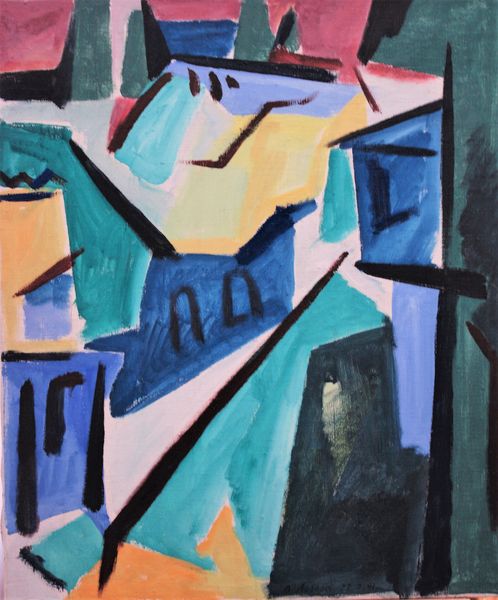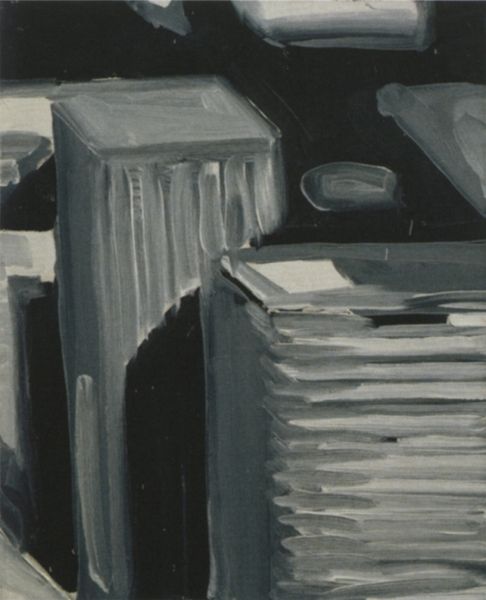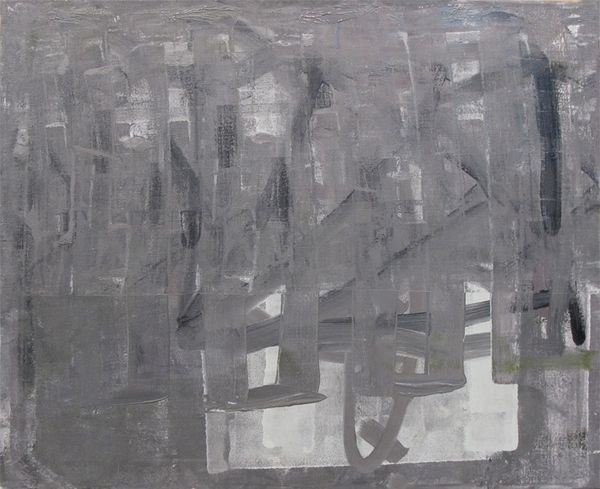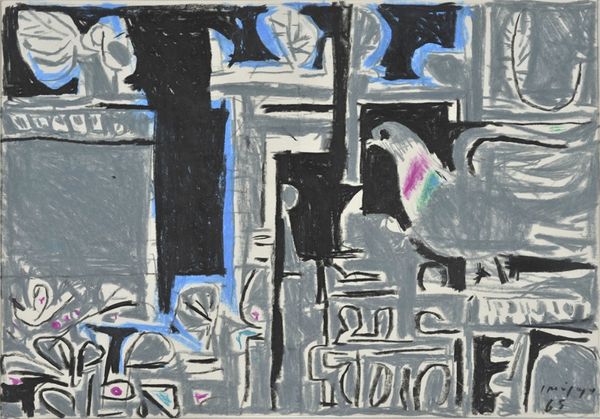
#
capitalist-realism
Copyright: 2019 Gerhard Richter - All Rights Reserved
Curator: What a spectral presence this little canvas holds! It's Gerhard Richter's "Townscape M9," an oil painting from 1968. What's your initial impression? Editor: Immediately, it's this sensation of a half-remembered dream, all in greyscale, as if colour was just a rumour. A ghost of a cityscape...almost unnervingly so. It has this jumbled architecture. Are they ruins, or maybe something under construction? It unsettles me, to be honest. Curator: That disorientation is key. Richter often explored themes of memory and ambiguity. Cityscapes traditionally symbolize progress and order, yet here, they seem to crumble. Given Richter's German background, could this image carry the weight of post-war trauma, reflecting fragmented identity? The black-and-white palette seems a calculated choice. Editor: That resonates. It definitely carries a weight that goes beyond pure aesthetics. The rigid geometry is there but destabilized, those repetitive rectangles remind of postwar urban planning but with something deeply wrong with them. Did Richter maybe mean the lack of humanity of city life? I sense both control and loss in these hard angles softened by the monochrome palette. Curator: That tension is something visible through all his work. Remember, Richter engaged with both abstraction and figuration and sometimes within the same piece. The symbolic value of geometry often reflects a desire for structure, for meaning in a world that feels meaningless after terrible events. But as you mention, the blurry edges reveal how difficult those clean concepts of modernity could be, when put in practice. The ghostliness is a reminder of humanity's presence in it. Editor: Absolutely, It also reminds me of images we see through frosted glass; close, yet untouchable, like an unattainable past. There is almost a sense of longing but also loss for any sense of coherence within. Maybe the monochromatic feel helps giving a historical vibe like when remembering something that happened many decades ago? It speaks so eloquently to our complicated relationship with place and memory, don’t you think? Curator: Precisely. The symbolic city remains standing, just barely. A chilling yet deeply affecting paradox that Richter seems to have perfected, right? Editor: Exactly, "Townscape M9" has just burrowed into my thoughts like a half-forgotten melody...or a disquieting premonition!
Comments
No comments
Be the first to comment and join the conversation on the ultimate creative platform.
